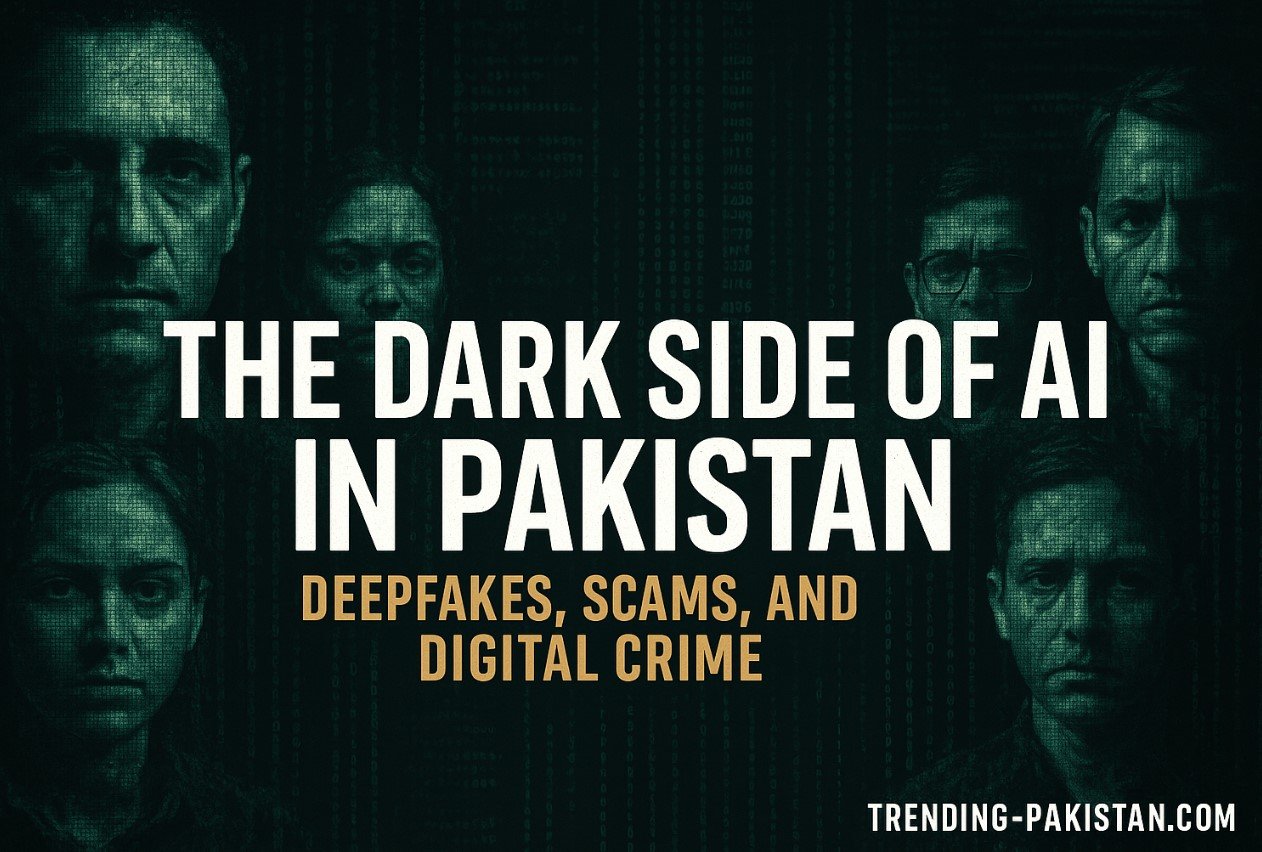
The Dark Side of AI in Pakistan: Deepfakes, Scams, and Digital Crime
AI is powering innovation across Pakistan — from digital marketing to customer service.
But behind the progress lies a growing threat: AI-fueled crime.
Deepfake videos, cloned voices, and AI-generated scams are becoming alarmingly common.
In 2025, Pakistan’s digital landscape faces an urgent question — how do we innovate safely without falling prey to AI manipulation?
Common AI Crimes in Pakistan
1. Deepfake Videos
AI can now create ultra-realistic videos of public figures saying or doing things they never did.
These deepfakes have already been used in political misinformation, defamation, and even blackmail.
In a hyper-polarized media environment, a single fake clip can go viral before it’s verified — damaging reputations and spreading chaos.
2. Voice Cloning Scams
AI tools can replicate a person’s voice from a short audio clip.
Scammers use this to call relatives or employees pretending to be someone they know — often asking for urgent money transfers or sensitive information.
With the popularity of WhatsApp voice notes, this scam is especially dangerous in Pakistan’s trust-based communities.
3. Fraudulent AI-Generated Ads
AI-generated fake business ads and investment pages are spreading rapidly.
They use deepfake celebrity endorsements and AI-written testimonials to convince users to invest in scams, crypto schemes, or fake e-commerce offers.
4. Cyber Attacks with AI Tools
Hackers now use AI to:
- Crack passwords faster
- Generate phishing emails that look more authentic
- Automatically target victims based on their online data
This makes cybercrime faster, cheaper, and harder to trace.
Why Pakistan Is Especially Vulnerable
1. Low Digital Literacy
Many internet users, especially in rural areas, struggle to differentiate between real and fake digital content.
A convincing AI video or audio can easily deceive even educated audiences.
2. Weak Cybercrime Enforcement
Pakistan’s Prevention of Electronic Crimes Act (PECA), enacted in 2016, wasn’t built for generative AI.
There are no clear laws defining AI-generated misinformation or deepfake crimes.
3. High Trust in Social Media
WhatsApp forwards, Facebook posts, and TikTok videos spread fast — often without verification.
This creates fertile ground for AI misinformation to go viral before fact-checkers can respond.
How to Fight Back
1. Public Awareness Campaigns
The first defense is education.
Government agencies, media outlets, and NGOs should run nationwide awareness campaigns on how to spot AI-generated fakes — especially in Urdu and regional languages.
2. Update Cybercrime Laws
Pakistan needs AI-specific legislation that defines and penalizes:
- Deepfake production and distribution
- AI impersonation and voice cloning scams
- Misuse of generative tools for fraud or manipulation
3. Invest in AI Fact-Checking Tools
Develop or promote AI-powered detection systems that identify fake videos, altered audio, and synthetic news — with local language support.
4. Media Literacy in Schools
Teach students to question digital content, verify sources, and understand how algorithms work.
Digital resilience starts with education, not regulation alone.
The Road Ahead
AI is transforming Pakistan’s digital economy — but it’s also transforming crime.
Every new technology introduces new risks, and AI’s power to imitate reality makes those risks especially dangerous.Still, the solution isn’t to fear AI — it’s to understand and regulate it.
The dark side of AI is already here, but it doesn’t have to define Pakistan’s digital future.
By combining education, regulation, and technology, the country can protect its citizens while still reaping the benefits of innovation.
Because in the age of AI, the greatest security isn’t just better firewalls —
it’s a smarter, more aware public.








